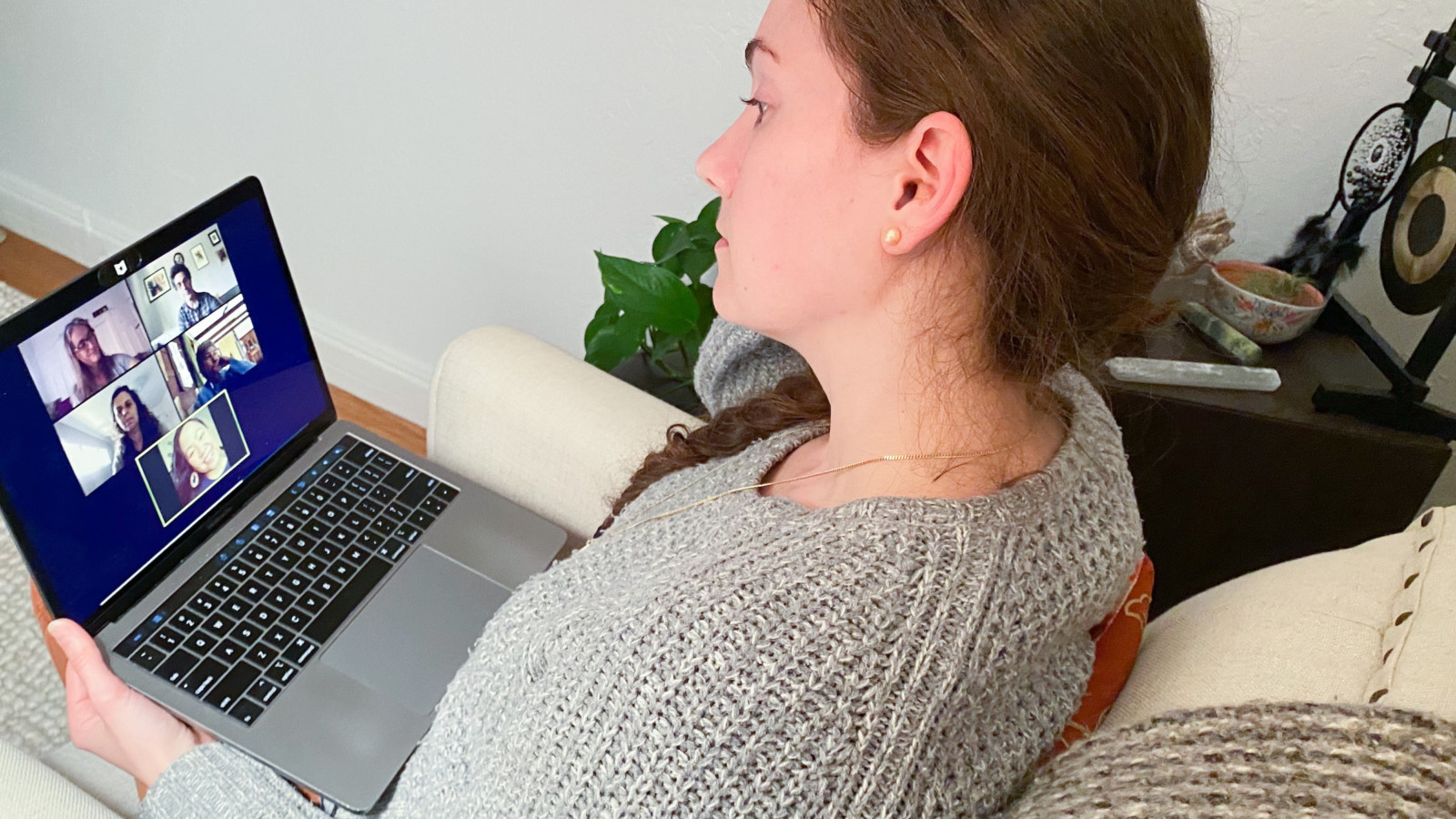A recent article out of Stanford University shared 4 reasons why we experience Zoom fatigue (“eye contact,” “cognitive load,” “all-day mirror,” and “reduced mobility”). Many articles followed with helpful recommendations, but they glossed over a key point:
Video calls may be negatively affecting women more than men.
In honor of Women’s History Month, let’s discuss why and what women can do about it. To support this effort, I interviewed some of my coaching clients, who are all busy professional women (aka they’re on video calls daily).
The article references a few studies that show how women in particular experience greater self-criticism after staring in a mirror or seeing themselves on video. He summarizes Ingram, et. al. 1988: “Women who saw videos of themselves responded with greater levels of self-focused attention and negative affect… The authors argue that the tendency to self-focus might prime women to experience depression” (Bailenson, 2021).
So, here’s my question: Are you feeling that too? If so, what’s your video meeting setup?
While many of the articles following Bailenson’s release suggest turning off “self view” on Zoom or subbing for audio calls, it’s more complicated than that.
As Caline Raab, Sr. Manager, Learning and Development in the cosmetic industry, shares with me:
I knew I stared at myself all the time on Zoom and about the ‘hide self’ option, but I fear what others see and just need to make sure I’m ok… I see the negative effects. I judge myself more. Worry how I look more. Talk about my looks more. Adjust myself more. I even switched from regular to mirror so I could know what everyone else sees. The article talks about it causing depression, which I have experienced over the last year. I just never attributed it to Zoom.
So which do you choose? Near constant self-criticism or not knowing if your hair is all over the place?
Unfortunately, “mirror trauma” isn’t the only video call stressor.
The 2nd challenge my female clients shared with me is the feeling of being “on” more than ever before.
Bailsenson backs this up: “On Zoom, behavior ordinarily reserved for close relationships—such as long stretches of direct eye gaze and faces seen close up—has suddenly become the way we interact with casual acquaintances, coworkers, and even strangers.”
Translation: we’re more vulnerable than ever––not to mention that we’re being viewed in previously private spaces, our own homes. The effects?
We’re in a cycle of judgment:
We judge ourselves more, we feel more judged by others, and we see that judgment reflected back at us up-close and personal.
To add to the toll, we’re also video chatting outside of work: Weekly game nights. Extended family catch-ups. One-on-one conversations with loved ones.
“A FaceTime or Skype from a friend used to be a welcome treat. Now, it fills me with anxiety to have to be on yet another call where I look at this screen. Being always on or available is unnatural, yet we now have this expectation of each other” says another client, Lindsay Alford, a Program & Strategy Manager at Google and the Executive Director of Techapella.org.
No wonder we’re all feeling more stressed and depressed these days.
What can women do for relief?
Practice self-care––not the “SHOULDs”, but adaptive, personalized, and easy-to-sneak-into-your-day self-care.
Self-care mitigates the emotional drain of video calls because it’s the practice of self-love. And like everything, the more we practice self-love, the more we embody it.
According to neuroscience research mentioned in The Power of Habit and Atomic Habits, small changes add up over time––when we are consistent and repeat them. I’ve found the same to be true in my coaching practice, with women able to increase their energy by 196% in just 8 weeks when they commit to a bite-sized self-care routine.
Here are 5 bite-sized self-care ideas you can do today:
- Track your energy throughout the day from 1-10 to see where you have the biggest lows. Then add 5-25 minutes of self-care at those points so it’s not a huge buildup at the end of the day
- Become aware of negative self-talk and replace it with progressive affirmations–– empowering phrases that are one step closer to where you want to be
- Take deep belly breaths throughout the day to help your nervous system get out of a stress response and back into a more relaxed state
- Take a 30-second shake break after meetings to literally shake out (or dance away!) other people’s energy
- Move your laptop further away from you when on video calls and take notes on paper to create more personal space and take a break from near-constant eye contact
Above all, remember you’re not alone. There’s no perfect solution––approach these ideas with a playful curiosity, take what resonates, and leave what doesn’t. Even one small step today can help you feel better tomorrow.
__

Emily Schickli, M.A., RYT200 is a Self-Care and Intuition Coach, Reiki Master, and the founder of Mind Body Dharma. She’s led workshops for companies like Google, Uber, and Course Hero, appeared on podcasts like Yoga Magic and Unreasonable Enthusiasm and helps busy professional women who are done with the to-do list overwhelm reclaim their time, energy, and power through her coaching programs. She loves to alchemize science and energetics to help women reconnect with their intuition and create a bite-sized self-care routine so they can live their most aligned lives. When she’s not helping women finally make self-care doable, she’s creating her own Oracle deck, tending to her 50+ plant babies, and experimenting with gluten-free dairy-free baking in the SF Bay Area.


